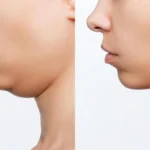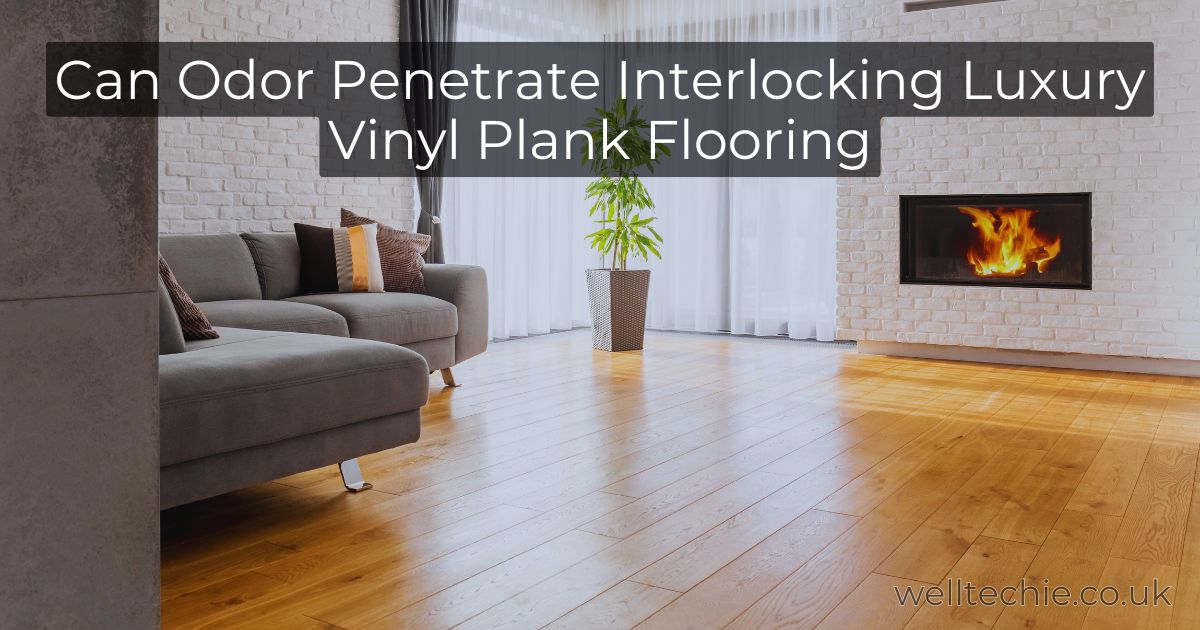When considering flooring options for your home, a common question arises: can odor penetrate interlocking luxury vinyl plank flooring? This inquiry is not just about aesthetics; it’s about comfort and the overall living environment. LVP flooring has gained popularity for its durability and style, but understanding its performance against odors is essential for making an informed decision. In this article, we’ll explore the composition of interlocking luxury vinyl planks, the nature of odors, and how to maintain a fresh atmosphere in your home.
What is Interlocking Luxury Vinyl Plank Flooring?
Interlocking luxury vinyl plank flooring, often referred to as LVP, is a modern flooring solution designed to mimic the appearance of natural wood or stone. This type of flooring is made up of multiple layers that contribute to its resilience and visual appeal. The top layer usually features a high-resolution photographic image, providing an authentic look. Beneath this layer, there are protective coatings that make it resistant to scratches and stains, ensuring it can withstand everyday wear and tear.
The key feature of interlocking LVP is its installation system. Unlike traditional flooring methods that may require glue or nails, interlocking LVP planks snap together easily. This innovative design not only simplifies installation but also allows for easy removal and replacement, making it a favorite among DIY enthusiasts. Additionally, interlocking systems reduce the chances of gaps forming between planks, creating a seamless appearance. Homeowners appreciate the balance of style, durability, and ease of maintenance that LVP offers.
Understanding Odors and Their Sources
Before delving into whether odor can penetrate interlocking luxury vinyl plank flooring, it’s vital to understand what causes odors in the first place. Odors in homes can stem from various sources, including cooking, pets, mold, and even the materials used in construction. These odors can be unpleasant and, if not managed properly, can linger in the air, affecting the comfort of your living space.
Odors can be classified into two main types: organic and chemical. Organic odors often come from food, pets, and waste, while chemical odors may arise from cleaning products, paints, or the materials used in furniture. Both types can create an unwelcoming atmosphere if they penetrate flooring materials. Understanding these sources helps homeowners take proactive measures to prevent odors from becoming a persistent issue.
The Structure of Interlocking LVP Flooring
Interlocking luxury vinyl plank flooring is composed of several layers, each serving a specific purpose. The top layer is typically a wear layer that protects against scratches, stains, and general wear. Below this layer, a high-definition photographic layer gives the planks their realistic appearance, mimicking natural materials. The core layer is made from durable vinyl, providing stability and flexibility, while the backing layer offers additional cushioning and moisture resistance.
This multi-layer construction plays a significant role in determining how odors interact with the flooring. While LVP is designed to be water-resistant, this does not automatically mean it is odor-proof. The properties of the materials used in each layer can affect whether and how odors might penetrate. Understanding this structure helps homeowners recognize the strengths and potential weaknesses of their flooring choice.
Can Odor Penetrate LVP Flooring?
The question remains: can odor penetrate interlocking luxury vinyl plank flooring? The answer is nuanced. While luxury vinyl planks are designed to resist moisture and stains, odors can still find a way to permeate the material under certain conditions. Factors such as the quality of the LVP, the installation method, and environmental conditions play a significant role in this process.
For instance, lower-quality LVP may not have the same level of odor resistance as higher-end options. Additionally, if the flooring is not installed properly, gaps may form that can allow odors to seep underneath. Environmental factors, such as humidity and temperature, can also contribute to odor absorption. It’s important for homeowners to choose high-quality products and ensure proper installation to minimize the risk of odor penetration.
Common Myths About Odor and LVP Flooring
There are several misconceptions surrounding the ability of odors to penetrate interlocking luxury vinyl plank flooring. One common myth is that LVP is completely odor-proof. While it does have excellent resistance to many odors, it is not entirely impervious. Odors can still penetrate if the conditions are right, especially if spills or pet accidents are not cleaned up promptly.
Another misconception is that all odors will fade over time. While some odors may dissipate, persistent smells, particularly those from organic sources, can cling to flooring if they are allowed to soak in. Lastly, many believe that thorough cleaning will eliminate all odors. While regular cleaning is essential, it’s crucial to address the source of the odor rather than relying solely on cleaning products.
Testing Odor Penetration in LVP Flooring
To understand how well interlocking luxury vinyl plank flooring can resist odors, various testing methods are employed. Laboratory testing often involves exposing LVP samples to different odor sources and measuring how much, if any, penetrates the material. These controlled environments provide insights into the flooring’s resistance levels.
Field studies are also valuable. Real-world scenarios reveal how LVP performs in actual living spaces where factors like temperature, humidity, and wear and tear can significantly impact odor penetration. Homeowners should consider these findings when choosing flooring, as they reflect how the product will behave in everyday use.
How to Prevent Odor Issues with LVP Flooring
Preventing odor issues in interlocking luxury vinyl plank flooring involves several proactive measures. First and foremost, proper installation is key. Ensuring that the planks are laid down correctly without gaps is essential to prevent odors from seeping beneath the surface. Additionally, using high-quality underlayments can enhance the flooring’s resistance to odors.
Regular maintenance is also critical. Cleaning spills immediately can prevent them from soaking into the planks and causing lingering odors. Using appropriate cleaning products designed for LVP can help maintain the flooring’s integrity while keeping it fresh. Homeowners should also consider using deodorizers and air purifiers to manage odors in their living space effectively.
Cleaning and Maintenance Tips for LVP Flooring
To keep interlocking luxury vinyl plank flooring looking its best and to minimize odors, regular cleaning is essential. The right cleaning products can make a significant difference. It’s advisable to use a mild detergent or a cleaner specifically designed for LVP. Harsh chemicals can damage the protective layers and lead to further issues down the line.
Frequency of cleaning will depend on the household. Homes with pets or high foot traffic may require more frequent cleaning to keep odors at bay. It’s also essential to address spills and stains promptly to prevent them from setting in. Using a damp mop and avoiding excessive water can help maintain the flooring’s appearance while preventing any potential odor issues.
What to Do If Odor Penetrates Your LVP Flooring
If you find that odors have penetrated your interlocking luxury vinyl plank flooring, identifying the source is the first step. It’s crucial to determine whether the odor comes from a spill, pet accident, or another source. Once the source is identified, remediation strategies can be employed.
For minor odors, cleaning the affected area with appropriate products may suffice. However, for more persistent smells, professional cleaning or specialized odor-removal services might be necessary. In extreme cases, if the flooring has absorbed too many odors or is damaged, it may be time to consider replacement. Homeowners should evaluate their options carefully to restore a fresh atmosphere in their living space.
Conclusion
In conclusion, the question of whether can odor penetrate interlocking luxury vinyl plank flooring is multifaceted. While LVP offers excellent resistance to many odors, it is not entirely foolproof. Homeowners can take proactive steps to prevent odors, such as choosing high-quality materials, ensuring proper installation, and maintaining a regular cleaning routine. Understanding the factors that contribute to odor penetration will help you make informed decisions about your flooring and maintain a comfortable, fresh home environment.
FAQs
Can pets cause odors to penetrate LVP flooring?
Yes, pets can be a significant source of odors. If accidents occur, they can seep into the flooring material, especially if not cleaned promptly.
How long does it take for odors to dissipate from LVP?
The time it takes for odors to dissipate varies. Minor odors may fade quickly, while stronger smells may linger and require thorough cleaning or treatment.
Is there a way to completely seal LVP flooring against odors?
While you can take measures to enhance odor resistance, such as sealing and proper installation, no flooring is entirely odor-proof.
What should I do if my LVP flooring smells after installation?
Identify the source of the odor, clean it thoroughly, and consider professional assistance if the smell persists. In extreme cases, replacement may be necessary.









